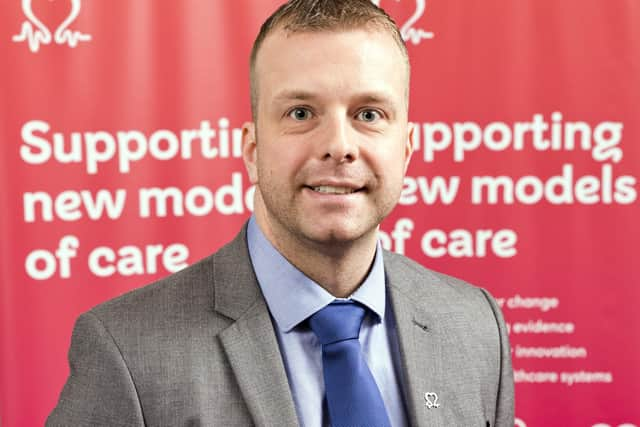A ‘one-size-fits-all’ approach doesn't work for cardiac rehab patients - Richard Forsyth
Despite this, most programmes met the challenge head-on and rapidly introduced innovative approaches to the assessment, exercise and support of people who had just had a cardiac event, intervention or diagnosis. Due to the natural delay in the development of amended guidelines and research evidence, services had to implement a combination of existing digital and home-based resources whilst simultaneously developing ‘in-house’ materials.
What was anticipated to be a relatively short-term adaptation turned into ongoing change and instability, driven by continuing workforce shortages, loss of clinical & gym space, implementation of social distancing measures, local and national lockdowns and multiple spikes in infection rates.
Advertisement
Hide AdAdvertisement
Hide AdHowever, it also provided a number of opportunities. This period of testing and learning new approaches has prompted services to completely rethink ways of delivering cardiac rehabilitation and embrace new technologies.


To learn more about patients’ experience, the British Heart Foundation heard from over 200 people in an online survey who participated in cardiac rehabilitation between August 2020 and February 2022 and held two focus groups in June this year.
The survey asked them to describe how they engaged with their cardiac rehabilitation programme and, if given the choice, what would have been their preferred mode of delivery – to face, virtual or telephone? Did they use any form of technology, and did they find it helpful? Did they have an opportunity to engage with other people going through rehab at the same time?
Our insight found that only 40 per cent of people received a face-to-face assessment while 73 per cent of people would have preferred that mode of engagement. Just under one in four (24 per cent) were able to include a family member or friend as part of their initial consultation and almost 60 per cent of patients did not have the opportunity to connect with others going through rehabilitation.
Unsurprisingly during this period, 76 per cent of patients used some form of technology during their programme, ranging from virtual consultations to home blood pressure monitors and smartwatches to mobile apps. The user experience varied with some finding it empowering and a safe way to monitor heart rate and blood pressure whilst others felt it overwhelming and confusing.
What the array of patient insight did tell us was that clearly a single, ‘one-size-fits-all’ approach moving forward is not advised. Patients are keen to embrace new technologies, to build a rehabilitation programme which is flexible and sensitive to their personal circumstances and preference.
If we can take a positive from the last two years, it should be the resilience and versatility shown by our colleagues in the NHS and the new offerings we now have in cardiac rehabilitation which have the potential to drive improvement in uptake and ensure clinical quality is maintained.
The pandemic has afforded us an unprecedented opportunity to create a new and robust evidence base for the hybrid delivery of cardiac rehabilitation to tackle inequalities, develop and expand the eligibility criteria and to support less well served groups to engage with local teams across the UK. Now is the time to make this a reality.
Advertisement
Hide AdAdvertisement
Hide AdYou can read more on cardiac rehabilitation here: www.bhf.org.uk/for-professionals/healthcare-professionals/data-and-statistics/cardiac-rehabilitation-report.
Richard Forsyth, Health Systems Insight Manager, British Heart Foundation Scotland
Comments
Want to join the conversation? Please or to comment on this article.